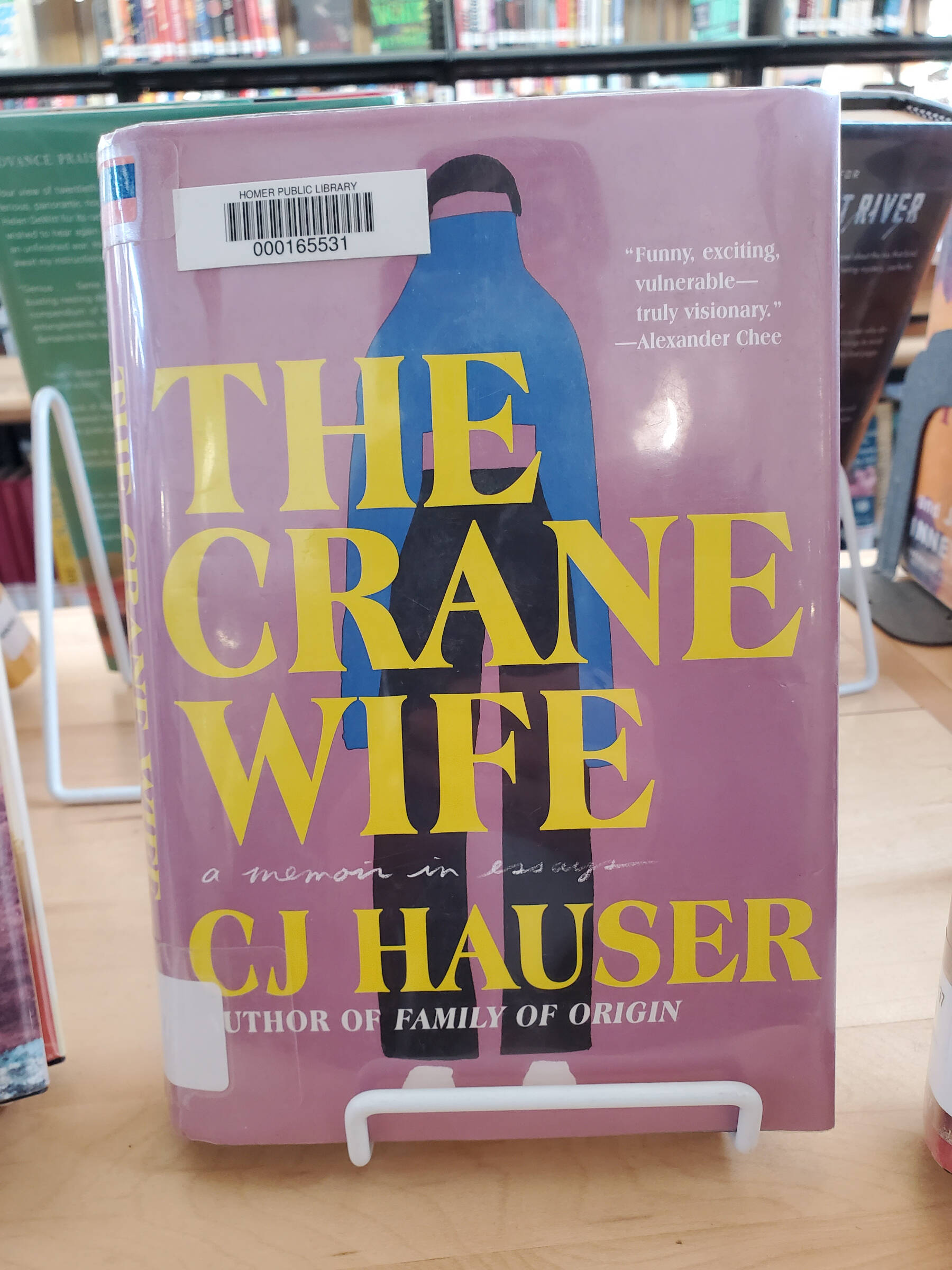Reading nonfiction has never really been my thing. Three years spent reading a variety of genres and authors in grad school has served to help me cross that divide somewhat, but if I’m looking for a book to read and enjoy, chances are still that I’m going to be heading for the fiction section first.
The Homer Public Library has been conducting their annual Lit Lineup, a community-wide initiative to read 15 books a year. It’s a great way to find new things to read — new titles, new authors, new genres, new topics, new voices. The library staff, who carefully select the titles for each year’s lineup, also do an effective job at arranging attractive covers in the Lit Lineup display.
It was there that I came across CJ Hauser’s “The Crane Wife.” A work of creative nonfiction, the memoir is comprised of a series of essays and isn’t so far outside of my comfort zone that I hesitated to check it out.
The title also piqued my interest. If you’re not familiar, the story of the crane wife comes from Japanese folklore in which a man marries a woman who is, in fact, a crane in disguise. There are many variations of this story — most of them centered on the crane wife plucking out her feathers to make beautiful pieces of clothing to sell to support her family until she is discovered and flees — but in the version that Hauser read, that informed both her eponymous essay and the memoir as a whole, the crane wife loves her husband but knows that he will not love her as a crane, and so she spends every night plucking out all of her feathers with her beak.
“She hopes that he will not see what she really is: a bird who must be cared for … a creature with needs,” Hauser writes. “Every morning, the crane wife is exhausted, but she is a woman again. To keep becoming a woman is so much self-erasing work.”
The essay begins 10 days after Hauser calls off her wedding and moves out of the house she’d just bought with her fiancé in upstate New York. On that 10th day, she goes off on a scientific expedition to study the whooping crane on Texas’ Gulf Coast as part of her research for a novel. The essay switches back and forth between the time leading up to the wedding’s cancellation — all the feathers that she painfully plucked out, night after night, so her would-be husband would love her — and the lessons she learns while on the expedition about having enough on which to survive.
Hauser doesn’t write about the crane wife until the end of Part One of her memoir. She spends the first 70 pages laying the groundwork for the revelation that you will have upon reaching “The Crane Wife,” the essay — that love, in whatever form it takes, should not be forced to starve itself and survive on less.
“To be a crane wife,” Hauser writes, “is unsustainable.”
Primarily a fiction writer, Hauser’s craft in her debut memoir is also something wonderful to behold. The skill with which she braids together nonlinear timelines and cross-generational stories is masterful, and I love her playfulness with form that appears in lists and vignettes and excerpts from screenplays and other media.
I’m a sucker for texts that play with format and blur the boundaries between genres — so along with her witty and vulnerable prose and her hilarious and emotional escapades recounted in the pages of these essays, I was hooked. I think I will purchase my own copy, and revisit this one again soon.
“The Crane Wife” is CJ Hauser’s first nonfiction publication and is available to check out at the Homer Public Library.
Off the Shelf is a bimonthly literature column written by Homer News staff.

